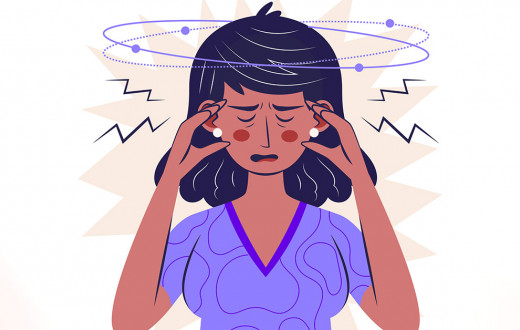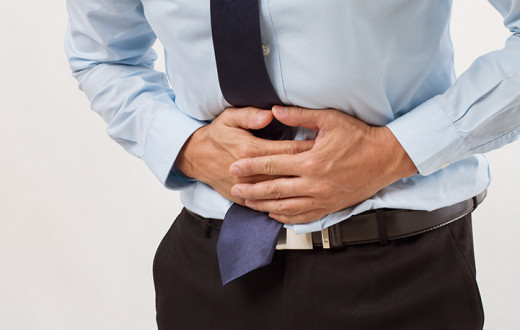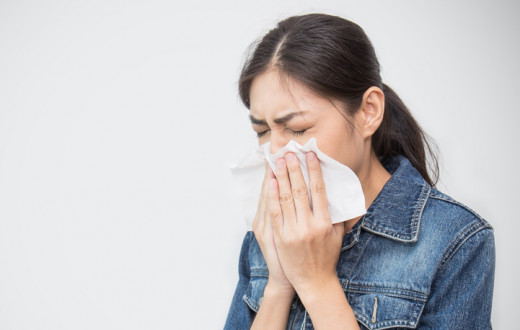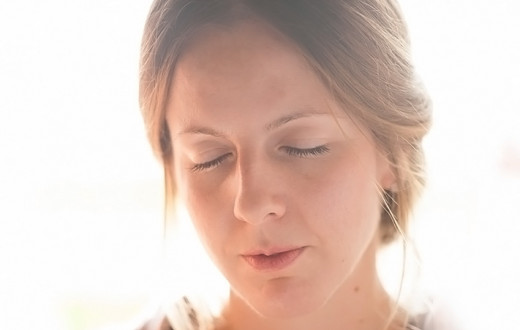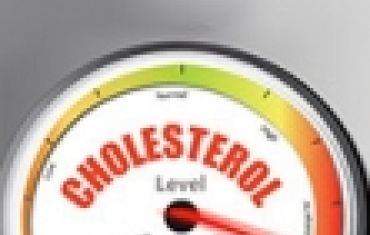PCOD stands for polycystic ovarian disease. It is a disorder in females due to hormonal imbalance causing the ovaries to produce immature eggs . This results in cysts in the ovaries and is a leading cause of infertility in women. This is mainly a lifestyle disease affecting about 18-20 percent women in the world. Women with PCOD are known to produce androgens, which is a male hormone and may have cysts in ovaries. It is vital to track the symptoms of PCOD and follow a diet to manage it.
How do you know if it’s PCOD?
Look for the following symptoms of PCOD/PCOS.
Irregular periods or bleeding
Excessive hairiness on the face or chest

Heavyweight
Acne and baldness
Ovarian cyst

High insulin levels, high cholesterol, hypothyroidism
Irregular bouts of anxiety, depression, etc.
As you know, ovulation(releasing an egg from the ovaries) causes menstruation. The movement of the ovum/egg towards the uterus is facilitated by Vata (ether). The imbalance in pitta(fire) and Kapha (water) dosha causes the accumulation of ama(toxins) in the body and is responsible for forming cysts in the ovaries. If left untreated, PCOD can lead to high blood pressure, diabetes, cardiovascular diseases, or endometrial cancer.
6 Foods to eat in PCOD
Herbs
Herbs like turmeric, shatavari, ashwagandha, ashoka, varuna, etc., are great options for controlling the symptoms of PCOD. While turmeric decreases insulin resistance, shatavari fights against diabetes and can improve fertility in women. Ashwagandha relieves you from anxiety and ashoka controls the production of male hormones. Varuna helps reduce the size of the cyst.
Cruciferous vegetables
Cruciferous vegetables like cabbage, broccoli, cauliflower, etc. are great for pitta control as they have astringent flavor or bitterness. They work to lower inflammation and fight against PCOD.

Nuts and seeds
Almonds, walnuts, chia seeds, sunflower seeds, etc., are great Vata-pacifying snacks. They support the tissues with healthy fat that glows the skin, and have high protein and fiber, providing nutrition. Cardamom seeds have been found to provide relief against period cramps. However, since nuts are relatively heavier to digest, ensure you soak them for 6-8 hours before consuming them.
Leafy greens
All types of green vegetables like spinach, kale, asparagus, beans, and beets are great for skin and hair as they reduce ama(toxins) in the body. Givers of Vitamin C and K, green vegetables are rich in antioxidants and help in digestion. If you have aggravated Vata dosha, remember to cook the vegetables well with Vata pacifying spices and eat in moderation.
Herbal teas
Herbal teas, such as spearmint, chamomile, ginger, cinnamon, etc., help in weight loss and balance the hormones in the body. They balance the doshas in the body, detoxify and strongly work against PCOD.

Lentils
Nutritious with cleansing properties, lentils help greatly against PCOD. Red lentil or masoor dal is known to be sweet and light; it digests easily and balances the doshas well.
6 Foods to Avoid in PCOD
Sugary food
The free flow of Vata in the body gets restricted when you consume excess sugar, leading to diabetes and unhealthy weight gain. It aggravates the symptoms of PCOD.
Salty food
Excess sodium(anything more than 5 grams per day) can lead to heart problems, high blood pressure, and skin issues. The Kapha dosha gets provoked, which can further drain out calcium from bones.
Bakery products
Cakes, pastries, bread, etc., tend to block the body’s channels as they increase Vata. They also cause indigestion and slow liver functioning.

Fried and frozen
Eating fried foods generates pitta and increases cholesterol. The process of refrigeration strips nutrition off the food and weakens digestion. Hence it is best to avoid eating excessive oily food or frozen products to cure PCOD.
Gluten products
An excess of gluten can cause celiac issues, slow down metabolism, and pose threat to the small intestine. It is good to eat wheat or gluten products in moderation so that you feel light and active.
Soy products
Not favorable for people having Vata dosha, soy products are high in protein and extremely difficult to digest. Also known to cause thyroid issues in some people, it is best to avoid these foods if you have PCOD.
Takeaway
As we see, many foods can cause an imbalance of doshas and hormones, so it is very crucial to know the right food to c treatment. Although allopathy is the way to treat the symptoms of PCOD, Ayurveda has been shown to improve the conditions of people and cure them of PCOD. As you follow the above food options and delve deeper into the best foods for PCOD, remember to balance it with yoga and exercise. Sarvangasana, matsyasana, and kapalbhati improve thyroid health and benefit women's health. Lifestyle changes make a significant impact in fighting PCOD.

FAQ on foods for PCOD
Since PCOD results from hormonal imbalance, sticking to a light food regime is the best option to treat it. Proper timing of food, a balance of nutritious and fresh supplements, and early dinner are some food precautions you can take.
Yes, but at moderate levels. Also, it's best to avoid full cream milk.
There are no serious complications of women with PCOD. It does not affect fertility in women as women can still get pregnant with medication. There is the risk of cardiovascular diseases, or infertility with PCOS.
Loss of weight
Regular periods
Less hair growth on face and chest
Better mood
Reduced hair fall
Reduced Acne
Panchakarma procedures, Ayurvedic diet consisting of herbs, and yoga and pranayama help greatly in curing PCOD.



